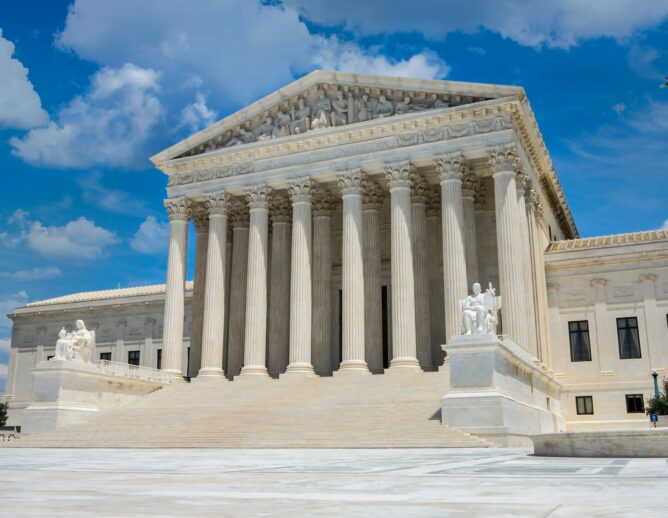
On June 26, the U.S. Supreme Court ruled in a 5-4 decision, NIFLA v. Becerra, that a California law that required disclosure of certain information was unconstitutional because it violated crisis pregnancy centers’ (CPCs) freedom of speech. CPCs are non-profit and typically religiously-affiliated organizations that provide counseling and limited pregnancy services to women. They are typically funded by prominent anti-abortion organizations. While most CPCs lack state-issued licenses to provide health care services and have no licensed medical professionals on the premises, they frequently masquerade as medical offices, offering free pregnancy tests, ultrasounds, STI testing, and counseling on “all options” for pregnancy. While some CPCs may provide appropriate support and information to women facing unintended pregnancies, many intentionally misinform and mislead women, refusing to provide information about or referrals for abortion or birth control.
Many lawmakers, physicians, scholars, and reproductive rights advocates have long criticized the manipulative tactics relied upon by CPCs to attract clients (e.g. calculated advertising campaigns, co-location strategies, provision of inaccurate information, etc.) and have sought to regulate CPCs through mandatory disclosure ordinances, which require them to disclose certain information. Cities like Baltimore, Austin, and New York have passed legislation requiring CPCs to disclose information about the services they provide, including whether a licensed medical provider is on staff at the center, whether center staff will provide or refer women for contraception and abortion services, etc. Most recently, in 2017, Washington state’s King County Board of Health imposed a new rule requiring CPCs to post signage stating they are not health care facilities.
In October 2015, California’s legislature passed the Reproductive FACT (Freedom, Accountability, Comprehensive Care, and Transparency) Act. The FACT Act required licensed facilities to inform their patients that “California has public programs that provide immediate free or low-cost access to comprehensive family planning services, prenatal care, and abortion, for eligible women.” It required unlicensed facilities to disseminate a notice to all clients stating “that the facility is not licensed as a medical facility by the State of California”. Shortly after Governor Jerry Brown signed the law, CPCs sued the state of California, arguing that both requirements violate the First Amendment.
In NIFLA v. Becerra, the majority ruled in favor of CPCs. Justice Thomas, joined by Justices Roberts, Kennedy, Alito, and Gorsuch, found that the notices required for both licensed and unlicensed centers would result in a violation of the First Amendment’s free speech protections. According to the majority, requiring licensed centers to advertise abortion compels them to speak a particular message, thereby altering the content of their speech. Justice Kennedy filed a concurring opinion, joined by Justices Roberts, Alito, and Gorsuch, which warned that the law “is a paradigmatic example of the serious threat presented when government seeks to impose its own message in the place of individual speech, thought, and expression.”
The dissenting opinion, written by Justice Breyer and joined by Justices Ginsburg, Sotomayor, and Kagan, argued that neither notice requirement would violate the Constitution’s free speech protections. Justice Breyer observed that the majority’s approach targets nearly all disclosures required by professionals, as virtually every disclosure law requires individuals “to speak a particular message.” He goes on to ask why “a State can lawfully require a doctor to tell a woman seeking an abortion about adoption services” but not “require a medical counselor to tell a woman seeking prenatal care or other reproductive healthcare about childbirth and abortion services.”
However, the evenhandedness Justice Breyer expects from the rule of law is rarely present in cases involving abortion. He reminds us that abortion – and therefore speech about abortion – is special, “that it involves in this case not only professional medical matters, but also views based on deeply held religious and moral beliefs about the nature of the practice.” It will likely always be treated differently from other health care services, even by the Justices of the U.S. Supreme Court.



